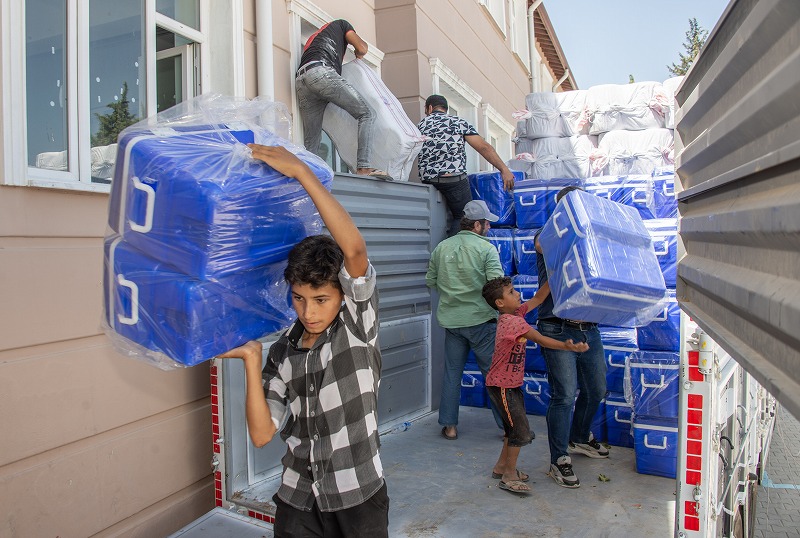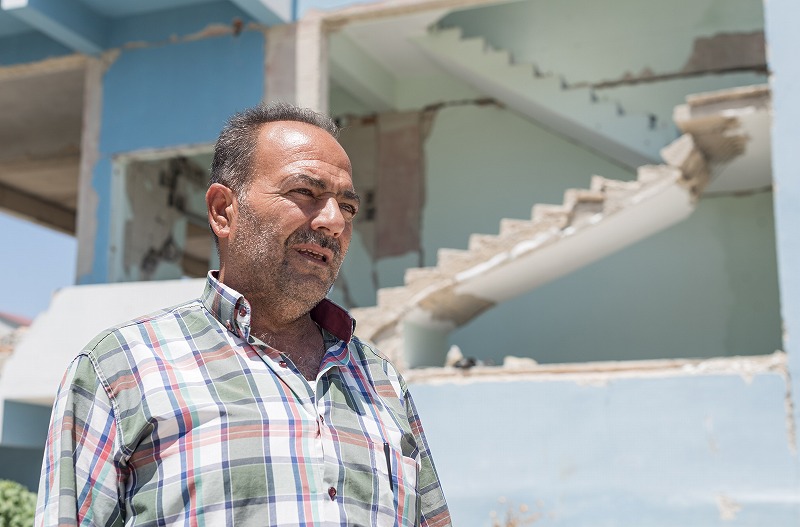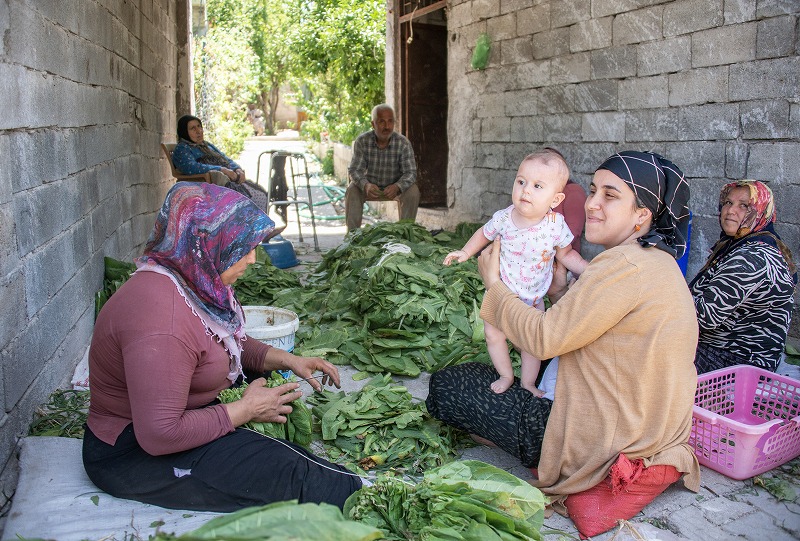Voices of Turkish Villagers Six Months After the Earthquake
It has been more than six months since the largest earthquake in Türkiye’s history struck in the early morning hours of February 6, killing more than 50,000 people, injuring more than 100,000, and directly affecting millions more through the loss of homes, buildings, and public infrastructure. Peace Winds employee Robert Gilhooly has been working in the hardest-hit villages of Hatay Province, and he recently spoke to some of the local residents to find out how their lives have changed over the past six months.
“I think the biggest change over the past six months has been people’s mental health.”
Hasan Keser, Tanisma resident
“Living in temporary dwellings takes its toll,” said Hasan Keser, a resident of Tanisma, a village in Hatay province. “I think the biggest change over the past six months has been people’s mental health, especially in this heat.”
Keser recently moved his family of four from a tent to a shelter next to their destroyed home, which is set to be demolished. Temporary dwellings in Tanisma are often located close to the occupants’ devastated homes, and while this is testimony to the deep ties to the land and the livelihoods it has long supported, it also presents a constant reminder of the February terror.
Like many of the villagers who are unemployed thanks to the earthquake, Keser spends his days from dawn until dusk wandering the streets seeking shade and company. Talking with friends helps, he says, but can lead to undesirable outcomes, such as physical confrontations – almost unheard of before the disasters.
Psychological damage is also cited as the biggest post-quake change by Resmiye Aslan, another village resident, as she sits in a shady driveway in central Tanisma nimbly threading tobacco leaves onto lengths of string for drying. She says the memory of that 6.8 magnitude tremor in the early morning hours of February 6 continues to haunt her.
Resmiye’s niece, Selcan, moved back to Madenboyu from Istanbul with her family because she was concerned about her parents’ mental wellbeing. The quakes destabilized the normally tranquil couple. “All it takes is the smallest thing, like a cold, and my mother starts talking about running away, like we’ve been hit by some kind of plague,” she says.
Resmiye says such thinking may seem a little extreme, but rather than healing them, she feels time has made things worse. “You would think in six months that the situation would improve, but we still have no idea where we will be living in a year’s time, and that kind of anxiety eats away at you. It’s affecting us all.”
“Nothing good has happened in the past six months.”
Shezah Ahmed, Madenboyu resident
“Six months ago, our lives were completely upended overnight,” said Shezah Ahmed, a Syrian refugee living in the village of Madenboyu. She was feeding the youngest of her three children, one-year-old Silah, and pointed with her free hand at the surrounding tents. “Since then, nothing good has happened.” Shezah, her family of five, and seven other relatives have been living in the settlement since February 6 when she lost her pregnant sister.
Of the many inconveniences she and her family face living in a tent, a shortage of clean water is the most serious, Shezah says. Because access to drinking water is limited, Silah is constantly in and out of hospital for various illnesses. Snakes, mosquitoes, and other insects are another nuisance that goes hand-in-hand with tent living, adding to the discomforts of extreme heat.
Adding to the disaster are the numerous aftershocks the country has continued to experience since the original earthquake. According to a WHO report in May, there had been more than 30,000 aftershocks. The latest of them, on July 25, measured magnitude 5.5 on the Richter scale.
How Peace Winds is Helping
Peace Winds has been working tirelessly to alleviate the hardships of Türkiye’s earthquake survivors over the past six months, providing numerous types of humanitarian aid. In the immediate aftermath of the earthquakes, Peace Winds dispatched search-and-rescue workers to aid in rescuing survivors and recovering bodies. Peace Winds also helped manage a temporary medical clinic in Hatay Province for the first two months following the disaster.
While Peace Winds continues to provide everyday necessities to earthquake survivors living in tents, the need for food is no longer a main concern. Now, during the hot summer months, it is important for people to stay cool as the tents can get quite hot. Peace Winds is now delivering fans and coolers to help villagers keep themselves and their food cool.

Peace Winds’ aid activities in Türkiye have been made possible by funds from Japan Platform and by donations from our generous supporters. Please click here to make a donation in support of Türkiye’s earthquake survivors, and follow Peace Winds on social media for regular updates on our support activities for populations around the world.

